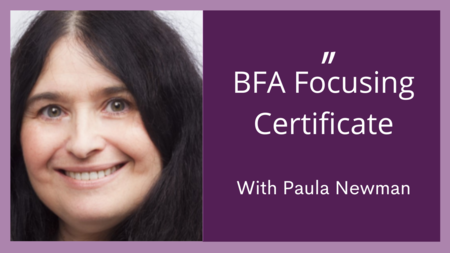Supervision Blogs
They are based upon my experiences as a supervisor and supervisee.
Finding a Counselling Supervisor, 8 helpful tips
Challenge in Collaborative Supervision
Person-Centred Supervision
I
Finding a Counselling Supervisor, 8 helpful tips
Whether you are a trainee therapist just starting out, or an experienced practitioner, professional supervision is compulsory in Britain. Supervision can be immensely facilitative of your practice and of your personal and professional development.
Many supervisors will offer you a free meeting or you may prefer to book a full session to get an idea of how you might work and connect with each other. Below are some suggestions regarding what to consider when looking for a supervisor.
1. Will I be able to talk to this person when (I think) I have made a mistake?
Many of us feel vulnerable about sharing our perceived mistakes with another person. However it is essential that you are comfortable enough to work with sensitive areas during supervision. In my view this is easier with a supervisor who is empathic, genuine and non-judgmental.
2. Can this supervisor challenge me?
Challenge can help you to examine yourself and your practice when it is given carefully and is in tune with your level of development. It can facilitate personal shifts and you can gain new perspectives.
3.Will this supervisor be able to understand my supervisory needs?
For example will your prospective supervisor recognize and provide the balance of support and challenge that you need? If you are just starting out you may need extra support and if you are an experienced counsellor you could be seeking more challenge.
4. Does this supervisor understand and respect my counselling perspective?
If you are thinking of working with a supervisor whose counselling approach differs from your own, I would recommend checking that the supervisor understands your way of working and is willing to support your work in this approach. You might gain new insights by working with a supervisor who has a different theoretical perspective.
5. Does the gender of my supervisor matter?
It may be that you prefer to work with a supervisor whose gender identity is the same or different to your own. Or perhaps the gender of your supervisor is unimportant. Exploring your own standpoint can be interesting and revealing and can help you to make decisions when looking for a supervisor. Likewise you might consider whether the race, culture, age etc of your supervisor is significant to you and to your work.
6. Do the supervisor’s location (including face-face or online) availability and fees realistic suit me?
The answers to these questions may be clear to you, or you might want to try out the journey and discuss fees and availability with a prospective supervisor. Some offer a reduced fee for trainee and voluntary counsellors.
Availability includes the days and times when you can book an appointment and the extent to which you can contact the supervisor between sessions, for example if you have a concern or an ethical dilemma.
7.The supervisor’s qualifications and experience
If you are a trainee counsellor it is important to check that your supervisor’s qualifications and experience fulfil your course requirements. You might want to work with a supervisor who has been practicing for a certain amount of time or who has experience of working in a particular field. Examples are young people, addictions and bereavement.
If you are applying for counsellor accreditation and if you are starting a private practice, you may want to work with a supervisor who can support you in these activities.
8. Do I feel comfortable?
This includes feeling comfortable with the supervisor themselves and in their working environment. When you meet notice if you experience a sense of ease and connection.
Supervisory relationships are a complex blend of professional, education and therapeutic aspects.
Geldard, D. & Geldard, K. (2001). Basic Personal Counselling: A Training Manual for Counsellors. (4th Ed). Sydney: Thompson Brooks/Cole p377
Challenge in Collaborative Supervision
For me the word supervisor suggests an overseer with one person having authority over another. This is unlike my experiences of collaborative supervision where supervisor and supervisee work together exploring relationships, ethical issues, supervisees’ development and so on.
Whilst it is usual for supervisors to have greater professional experience, supervisees have first hand experience of being in a therapy relationship with their clients. For me each person's contributions are valuable, adding to our explorations and understandings.
Hopefully everybody’s input is respected and no one is judged or criticised, making it safe to share experiences, discuss freely and try out ideas.
As a supervisor and a supervisee, I find that this creates a trusting atmosphere that facilitates self-awareness and supports genuine therapeutic and supervisory relationships.
Is a Collaborative Relationship an Equal Relationship?
At first glance a collaborative supervisory relationship might appear to be equal. However, for various reasons I find that there are inequalities. Here are some examples that I have encountered:
As a trainee counsellor I had individual and group supervision. In both I felt in awe of the supervisor’s experience, personal growth and qualifications. I gave my supervisors authority, whether or not they wanted it.
Some years later as a supervisor myself, I am frequently asked to write reports for trainee counsellors. Whilst this can be a valuable joint exercise, the nature of reports often infers that the supervisor is an authority on the supervisees’ development and the quality of their work. This creates an inequality in our relationship and places me in a powerful position since what I write might have positive or negative consequences for supervisees.
During supervision, supervisees are in the spotlight. We explore their work, perhaps their difficulties in accepting or empathising with a client, maybe something personal that is preventing them from being fully present and engaged. In this sense supervisees are more vulnerable in the relationship than supervisors.
The Challenge
In the past I tended to hide my own views and ideas if they differed from my supervisors' perceptions. This was due to (misguided) politeness and the assumption that my supervisors always knew best. The degree to which we could work collaboratively was affected since at times I was not contributing with my true feelings and opinions.
Similarly I have worked with supervisees who are nervous about sharing their uncertainties, difficulties and perceived mistakes.
For me the challenge is to create a space that enables open collaborative exploration in a relationship where there are certain inequalities. My hope is that supervisees can make the best use of their sessions, exploring anything of importance that arrises in their work and in their personal and professional development, and developing trust and confidence in their own perceptions and intuition.
Addressing Challenge in Collaborative supervision
There can be more than one helpful way of responding to clients. As a supervisor I hope to facilitate congruence also known as self awareness so that counsellors can check inwardly and rely upon their intuition, their feelings and their thoughts.
I take care to be openly myself in the relationship, that is a human being who makes mistakes, can feel uncertain about my work and does not pretend to know all the answers.
I try to be aware of the inequalities that the role of supervisor brings and inequalities relating to differences such as race, class, disability, learning differences and more. I try to notice what is going on in my relationships with supervisees, whether they are giving me the authority and whether I am accepting it. I try to address these situations.
As a supervisee I am also challenged to be aware of the inequalities. To notice when I am feeling vulnerable about sharing and exploring my work and expressing this if necessary.
Person-Centred Supervision
In this blog I write about working with a person-centred supervisor. There are sections on personal and professional development, a collaborative relationship; first sessions and what people talk about during supervision.
It is important that you are able to:
- Contact your supervisor between sessions if there is an emergency or something that cannot wait until your next meeting.
- You feel comfortable enough to explore your work at depth, including areas that you are uncertain about and any mistakes.
- You experience enough safety and warmth to be vulnerable in front of your supervisor.
- You have an honest and genuine relationship with your supervisor. Therefore you can comment upon the supervisory relationship without your supervisor becoming defensive and they are willing to give you honest feedback as necessary.
- Your supervisor is aware of your level of experience and development and can work with you at that level. For example, trainee counsellors have different needs from experienced counsellors.
- You feel challenged at a level that is suitable for you.
What is person-centred supervision?
I am most impressed with the fact that each human being has a directional tendency toward wholeness, toward actualisation of his or her potentialities.....if I can provide the conditions that allow growth to occur, then this positive directional tendency brings about constructive results. Carl Rogers, A Way of Being.
Person-Centred supervisors have a trusting attitude towards supervisees. This includes trusting supervisees to develop personally and professionally and trusting their experiences of clients and therapeutic relationships. Supervisors have the intention of providing a particular type of relationship that enables supervisees to be fully engaged and present for clients. Hopefully, this enables counsellors to meet their client’s needs and to practice in an ethical manner.
Carl Rogers (1957) describes six conditions that he considers necessary and sufficient for psychological growth. Whilst these conditions refer to the relationship between counsellor and client it can be argued that most are also important in supervisory relationships.
The conditions explained
Psychological contact – we are not just sitting in the same room. Something is happening between us, we have some sort of effect upon each other. It can be argued that this is fundamental. Without psychological contact nothing is going on between us, there is no therapy or supervision.
Imbalance or inconsistency - the second condition is that within the client there is an imbalance or inconsistency. As a result, the client feels anxious and seeks counselling. Rogers calls this state incongruence. This condition is most relevant to counselling relationships.
Congruence - the third condition is that the therapist/supervisor is congruent within the relationship. This involves being continuously aware of what one is experiencing whilst with a client/supervisee and able and ready to share ones experiencing when therapeutic or helpful.
Unconditional positive regard – The intention of having an accepting, respectful and warm attitude towards the other person consistently, regardless of what they say, think or do. Holding this attitude does not necessitate liking what is said or done, it is acceptance of the person themselves.
Empathy – The intention to understand another person so deeply that I understand what it is like to be them in this moment. At the same time, I am aware of my own individuality and my personal reality.
The final condition is that empathy and unconditional positive regard are experienced. If for example another person deeply understands my fear of flying but does not portray their understanding either in words or expression I cannot benefit from it.
The supervisee's personal and professional development
Personal development can be seen as integral to professional development. It includes developing an internal locus of evaluation (trust in one’s inner perceptions and intuition); acceptance of self and others and the capacity to put aside one’s own views and feelings in order to understand how something is from another person’s perspective.
Person-centred practitioners are interested in supporting supervisees in their process of developing congruence. This allows supervisees to work with clients at relational depth (relational connection).
The supervisor has no other concern, no other agenda than to facilitate the therapist’s ability to be open to her experience so that she can become fully present and engaged in the relationship with the client." Elke Lambers, 2000
Another aspect of professional development is looking at what is useful for supervisees in terms of reading and further training.
A collaborative relationship
Collaborative supervision involves supervisor and supervisee(s) engaging together to understand and to explore supervisory material such as the relationship between counsellor and client, ethical issues and the supervisee(s) professional development. This is a joint process and it is understood that each person has something important to bring to the enquiry, for example, professional experience, intuition, cognitive understanding, knowledge, wisdom and relationship with the client.
Collaborative supervision is most effective when there is a trusting, warm and respectful relationship between supervisor and supervisee(s). It is important that the supervisor is willing to carefully consider any personal feedback and welcomes discussion. It is essential that supervisee(s) feel sufficiently at ease with their supervisor or within a supervision group to be self-reflective and to explore their client work openly.
First Meetings and Sessions
Individual one to one Supervision - First Meetings and Sessions are an opportunity to get to know each other, to check that both people wish to continue working together and to discuss any expectations and concerns regarding supervision. Contracting might include agreeing upon the level of confidentiality and frequency, length and cost of sessions. Counselling course and workplace requirements may be specified.
Group Supervision - Often group supervision takes place in a counselling placement or a work environment. During the first session, the supervisor and supervisees meet and introduce themselves. Areas of discussion are likely to include confidentiality, requirements of the organisation, how to use and divide the time available and the participant’s counselling approaches.
Supervisees may have different therapeutic approaches and it is important that the supervisor has adequate knowledge of their perspectives and a respectful attitude towards all reputable approaches. This ensures that all supervisees are facilitated to work beneficially and ethically according to their own approach.
What do people talk about during supervision?
Supervision is a formal arrangement for counsellors to discuss their work regularly with someone who is experienced in counselling and supervision. The task is to work together to ensure and develop the efficacy of the counsellor-client relationship.
Supervisees express and explore their worries, difficulties, irritations and uncertainties. They share their pleasure in a clients’ process of change and signs of healing. The value of their work is recognised.
Supervisees talk about what happened in a counselling session and explore any area that seems to be important or significant. Supervisees’ perceptions and experiences of their clients and their clients’ material are considered. Issues are understood empathically from the client’s point of view.
Supervisees’ therapeutic relationships are explored. Areas include the effects of gender upon a counselling relationship; power dynamics between the helper and the helped; the effects of differences eg race, class, disability upon the relationship; levels of openness between counsellor and client and whether there is a sense of connection or distance between them.
Supervisee(s) and supervisor work with anything that is blocking a supervisee from being fully present with clients and from being accepting, empathic and genuine. Examples are personal issues, irritation with a client (e.g. for missing sessions), difficult client material (e.g. abuse), feeling afraid or uncomfortable with a client, race, religious and cultural differences between counsellor and client, sexual attraction and many more issues.
Supervisee(s) and supervisor consider appropriate boundaries and boundary issues in therapeutic and supervisory relationships.
Looking at therapeutic responses and interventions, what to say and whether or not to take a risk.
Theoretical understandings are explored and theory is linked with practice.
Checking together that the supervisee is working ethically and referring to organisational ethics, eg the BACP Code of Ethics. Dilemmas can occur and there is careful consideration of what is most therapeutic and ethical in these situations.
There is honest discussion regarding the relationship between supervisee and supervisor as necessary.
In group supervision it may be important to explore group dynamics and relationships and to work together with any conflicts that occur.
Trainee counsellors may work with current issues within a counselling course, counselling placement or working environment.You can't pour from an emply cup
Self-care is an important area to discuss and explore during supervision. This includes recognising the supervisee's needs for example when the work is intense and challenging and paying attention to physical and emotional health and well being.





